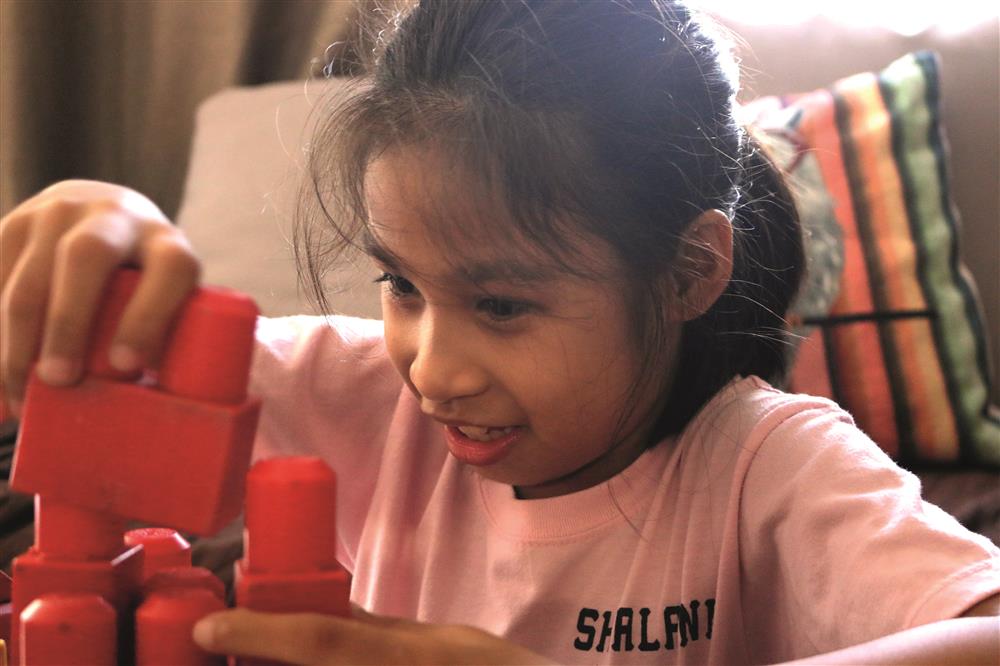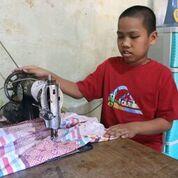A multifaceted approach towards inclusive pre-primary and primary schools
- Solution
- KASALI – No one left behind
- Organization
- Save the Children Philippines
- Country of Implementation
- Philippines
- Region
- Asia & Pacific
- Subregion
- Southeast Asia
- City
- Metro Manila
- Start Year
- 2014
- First published
- 31.01.2020

Solution details
“Even at the dinner table I make adjustments. I use a placemat so that her plate does not slide and I can leave her with her meal.” Neil, father of a child with disability
KASALI (which means “no one is left behind” in Filipino) is an Inclusive Education programme for children 12 years and under, organized by Save the Children Philippines. It uses a range of methods to achieve its goals, such as establishing model schools, training teachers in inclusive teaching techniques and educating parents. Moreover, the organization is conducting advocacy and policy discussions with the government. As a result, 739 children with disabilities have enrolled in school since 2014.
Problems Targeted
Children with disabilities in the Philippines are often left marginalized due to social stigma, with many schools unprepared to support their learning, and many children never enrolling.
Solution, Innovation and Impact
KASALI worked with local governments and schools to identify the current situation of children with disabilities in Parañaque, Taguig, and Pateros – three cities in the metropolitan area of Manila. Based on that expertise, KASALI facilitated the enrolment of 739 children aged 3–12 in general education classrooms (276) and in special education centres (351), while 42 were enrolled in day-care centres. It also provided training on Inclusive Education to teachers, parents, school heads, other education personnel, allied health professionals and peers, and local government bodies. Results show that the children have improved their cognitive skills through participation in school activities and have learned to trust their teachers and peers. In addition, KASALI has developed a training manual that builds the capacity of principals and teachers, and it provides parental support services. In 2017, KASALI’s approach to supporting teachers, school heads, and education officials was adopted by the Department of Education.
Funding, Outlook and Transferability
The initial budget to set up operations was $1.7 million, funded by the IKEA Foundation. As of 2019, the KASALI budget is $260,000, covered by Save the Children. KASALI’s engagement at the national level resulted in a memorandum of understanding on Inclusive Education for children with disabilities as part of the Council for the Welfare of Children's National Strategic Plan on Children with Disabilities. The agreement outlines roles and responsibilities among the national government agencies, including initial steps towards better programme integration for children and youth with disabilities. The Department of Education has adopted and used KASALI-developed materials, such as those used in teacher training, on a national scale. Moreover, from 2019 onwards, KASALI advocates for a national policy focusing on the education for learners with disabilities.
Media
Pictures
Videos
Downloads
Life Story
THE STORY OF MARK (10), BENEFICIARY OF THE KASALI PROJECT
“After only a few months, Mark was able to sit still and talk more.”
Mark’s mother, Sarena, didn’t understand her son’s behaviour. Unlike other toddlers, he never made eye contact, didn’t talk when playing, and never reacted to her calling him. People in her village called him abnormal and rowdy. Day-care centres refused to enrol him, saying they feared he was too violent and different, and that other parents would take their children away. Sarena learned about the Special Education class offered at one of the schools supported by Save the Children’s KASALI project. Mark was diagnosed with Autism Spectrum Disorder, and through the project he was able to start therapy. Sarena also met other parents in similar situations and learned more about disabilities. Today she is supporting other parents through the school’s parent group. As Sarena noted, “After only a few months, Mark was able to sit still, he talks more, and he doesn’t snatch snacks from others anymore.”
Related information
- Connections
- 2
-
Organization
- People
